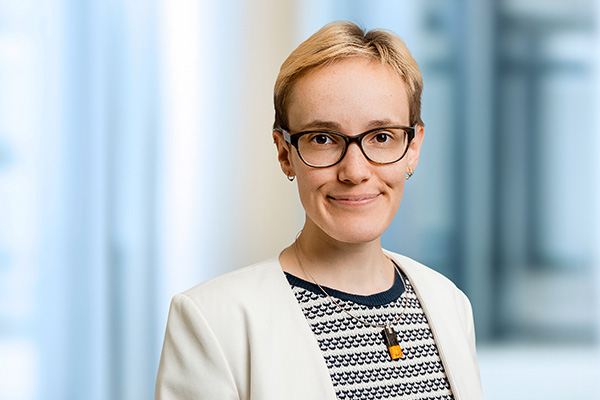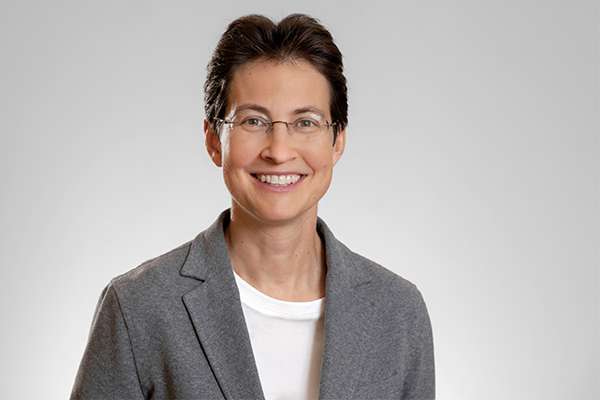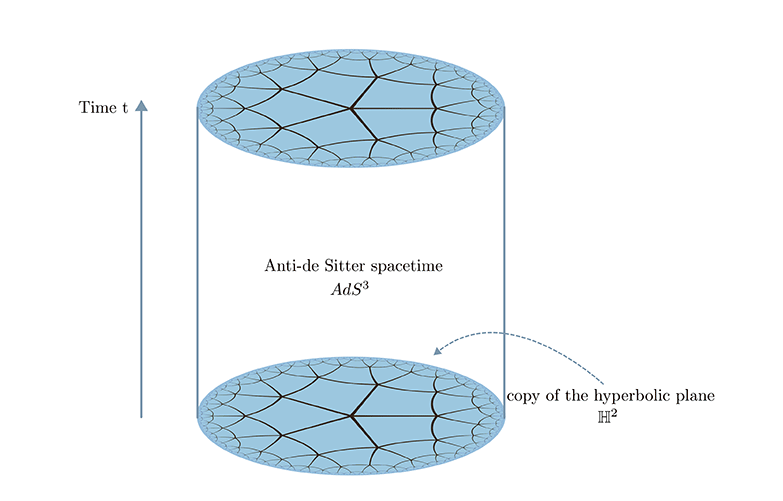Higher rank Teichmüller theory with a focus on SO(p,q)
Laura Lankers – Hector Fellow Anna Wienhard
In a spacetime we have one time dimension and multiple space dimensions. In our reality we experience three space-like dimensions. Now in differential geometry, nothing keeps us from considering manifolds with multiple time-like dimensions. In this project we study algebraic structures, in particular the group SO(p,q), which describe the dynamics and the geometry of so-called pseudo-Riemannian hyperbolic spaces with at least one time dimension.
In my project I will study higher rank Teichmüller theory, a topic that connects differential geometry and other mathematical areas such as algebra and analysis.
The base for this theory is studying two-dimensional surfaces and groups that induce certain “nice” dynamics on these surfaces. Of particular interest here are surfaces with a hyperbolic structure, meaning that the surface locally has a negative curvature, similar to the one of a saddle. So-called Teichmüller space then can be described as maps from the fundamental group of a surface into a special group related to the hyperbolic plane. In higher rank Teichmueller theory, we look at similar maps but instead consider groups connected to other spaces. During this project I will be particularly interested in pseudo-hyperbolic spaces that are connected to the group SO(p,q). These spaces can be thought of as spacetimes of negative curvature with multiple timelike directions as well as multiple spacelike directions. A low-dimensional example is the Anti-de Sitter space which plays a role in physics, for example in the AdS/CFT correspondence.
Concepts known in lower dimensional cases (for the numbers p and q small) can be generalized and studied further. The study of these higher rank Teichmueller spaces could be interesting as well for machine learning, using graph embeddings.

Laura Lankers
Max Planck Institute for Mathematics in the SciencesSupervised by

Anna Wienhard
Mathematics

